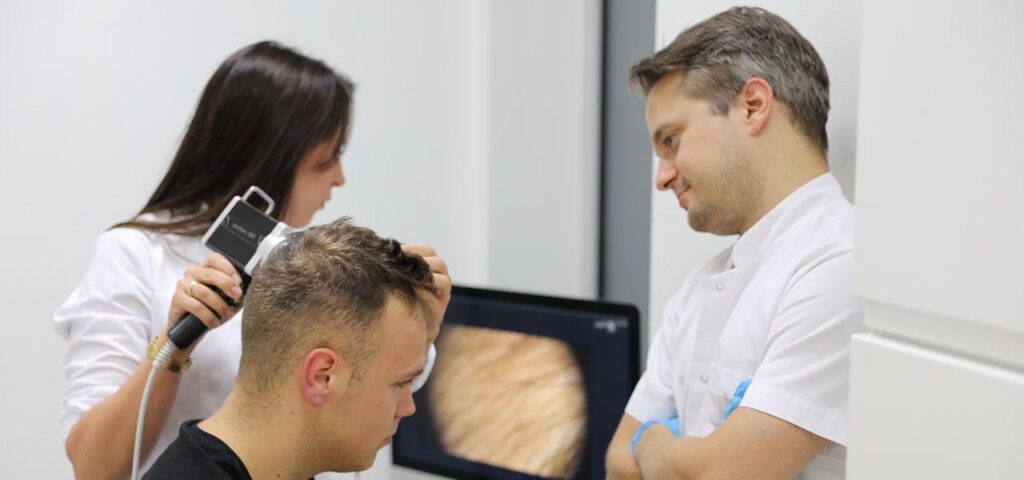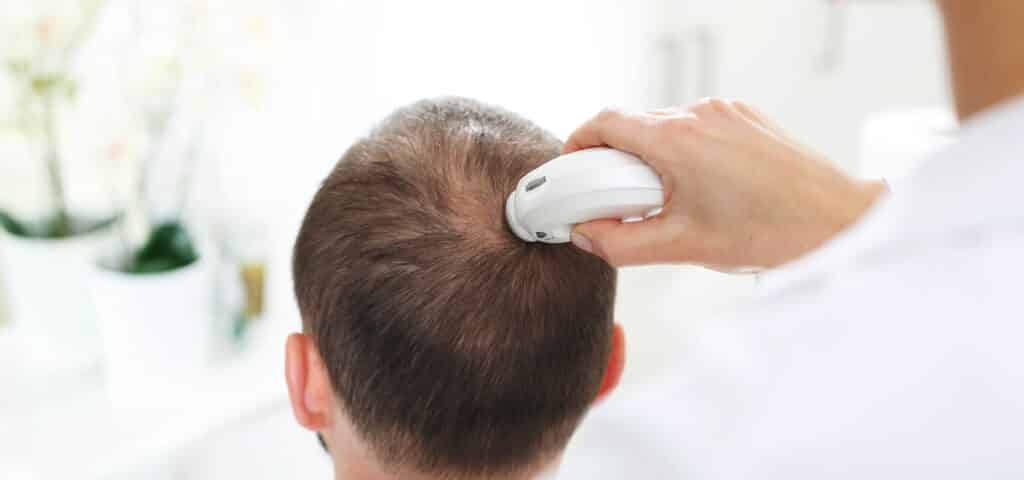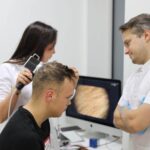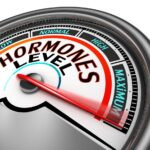Hair problems such as hair loss, premature graying, loss of shine, or brittleness may result from mechanical damage and improper care, but they can also signal underlying health issues. Causes often include vitamin and mineral deficiencies, hormonal imbalances, or chronic illnesses. To identify the source of the problem and introduce proper treatment, laboratory testing is often necessary.
Why do hair become weak and fall out?
Many factors affect hair condition – from genetics to lifestyle. Stress, poor diet, and inappropriate cosmetics are common contributors. Hormones also play a crucial role. Excessive shedding, greasiness, or weakening may accompany puberty, menopause, or thyroid disorders. Deficiencies and malnutrition further aggravate the problem.

Laboratory diagnostics allow for a precise assessment of overall health and detection of abnormalities. When hair issues arise, it is advisable to first consider a consultation with a trichologist, who can guide which tests are necessary.
General health check
A good starting point is basic laboratory tests. Complete blood count (CBC) provides insights into blood cell quality and quantity, helping detect infections, anemia, inflammation, or allergies.
To detect hidden inflammation that affects hair, important markers include CRP and ESR. Elevated CRP suggests active inflammation, while abnormal ESR values indicate systemic issues, even without clear symptoms.
Sex hormones and hair health
Hormonal disorders are among the most common causes of hair loss. Testosterone, estrogen, progesterone, and cortisol directly influence hair and skin. Excess testosterone can cause androgenetic alopecia, while low estrogen and progesterone weaken hair structure.
Key tests include:
- Testosterone and dihydrotestosterone (DHT) – measured in cases of hair loss or excessive body hair.
- Estrogen and progesterone – especially important for women during perimenopause.
- Cortisol – the stress hormone; elevated levels worsen shedding and weaken hair.
Thyroid testing
Thyroid dysfunction (hypo- or hyperthyroidism) often leads to hair thinning. This gland regulates metabolism, so its dysfunction affects hair, skin, and nails.
Key tests include:
- TSH – primary thyroid function marker.
- FT3 and FT4 – free thyroid hormones for detailed assessment.
- Anti-TPO and Anti-TG antibodies – for autoimmune diseases such as Hashimoto’s.
If abnormalities are suspected, an endocrinology consultation is recommended.
Which vitamins should be tested?
In Europe, vitamin D3 deficiency is very common, especially in winter. This vitamin regulates the hair growth cycle, and its deficiency may cause shedding.
Read more: Vitamins for hair – strengthening and anti-hair loss nutrients
Vitamin B12 is also crucial; its deficiency leads to hair loss, oiliness, or premature graying. Testing is especially important for vegetarians and vegans. Vitamin B9 (folic acid) deficiency weakens overall health and hair condition.

Key minerals for hair
Minerals are equally important as vitamins. They transport oxygen, support amino acid synthesis, and regulate metabolism. Key ones include:
- Iron – deficiency leads to premature follicle shutdown and thinning. Testing ferritin alongside iron is crucial.
- Zinc – essential for cell regeneration; deficiency causes shedding and poor wound healing.
- Magnesium and electrolytes – vital for proper body and hair function.
Scalp examinations
Sometimes, scalp disorders are the root cause. Dermatological diagnostics complement lab work. A trichogram helps evaluate follicles under a microscope, identifying growth phases and causes of hair loss.
Read more: What does a scalp and hair examination look like?
For suspected fungal infections, a mycological test (analyzing skin or hair under a microscope) identifies the pathogen and guides targeted therapy.

Regular diagnostics and specialist consultations are key to maintaining hair and overall health. Testing hormones, vitamins, minerals, and thyroid function provides valuable insights and supports effective treatment strategies.






